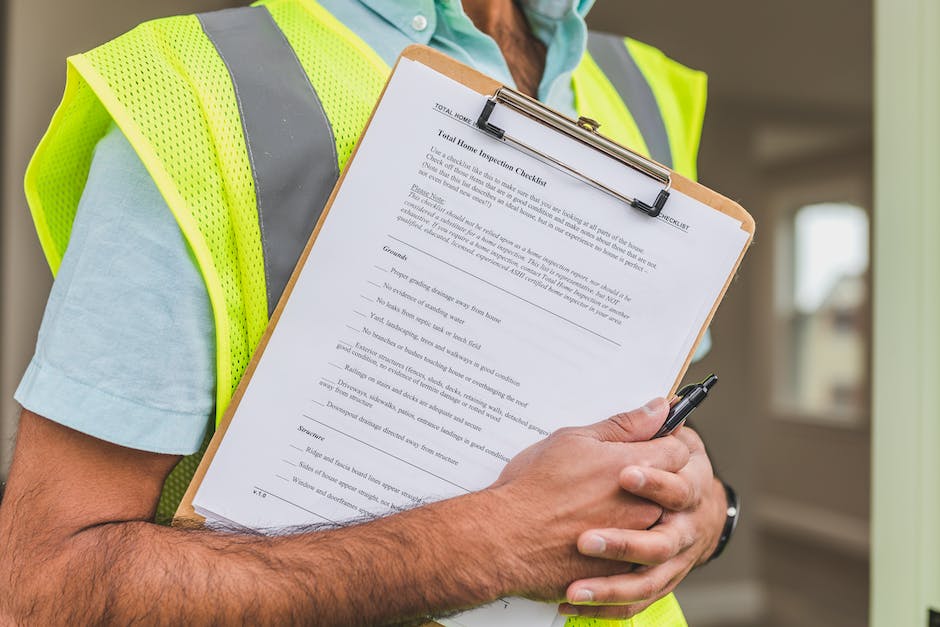In forging the path towards becoming a reliable and responsible landlord within Maryland, there exist a series of crucial steps and legalities that must be understood and adhered to. Progressing from understanding the intricate Maryland Landlord-Tenant Laws to fulfilling the required Landlord Education, each phase is integral in providing a secure and profitable rental environment. Armed with this knowledge, potential landlords will navigate the Rental License Application Process more efficiently, ensuring that their properties are up to par with the necessitated Inspection and Compliance standards. This establishes not only their credibility but also their commitment towards providing superior service to future tenants.
Understand the Maryland Landlord-Tenant Laws
Understanding the Basics of Maryland Landlord-Tenant Laws
To begin the process of obtaining a rental license in Maryland, it is imperative to deeply understand the Maryland Landlord-Tenant laws. These laws outline rules and regulations in relation to owning and operating a rental property within the boundaries of the state.
Commence Your Research
The first step towards understanding these laws is to do thorough research. Various legal resources, both online and offline, can provide in-depth information about these laws. Visit the website of Maryland’s Attorney General, public libraries, or consult with a lawyer who specializes in property law in Maryland.
Key Aspects of Maryland Landlord-Tenant Laws
The Maryland Landlord-Tenant laws cover a broad range of issues but for the purposes of obtaining a rental license, it is crucial you pay attention to specific parts. These include lease agreements, tenant rights, and mandatory property conditions.
Lease Agreements in Maryland
An important part of the law pertains to lease agreements. It governs how lease agreements should be drawn up, what must be included in them, and how they can be terminated. Often, the lease includes the terms of the tenancy, rent amount, and the roles and responsibilities of both tenant and landlord. It also lays out penalties for breach of contract.
Tenant Rights in Maryland
Every state has specific laws in place to protect the rights of tenants. In Maryland, these tenant laws stipulate what landlords can demand and what they cannot. They provide guidance on issues involving security deposits, repairs, late rent fees, and eviction processes. Landlords are prohibited from retaliation and discrimination against tenants.
Mandatory Property Conditions
Moreover, the property conditions that landlords must adhere to are also a key part of Maryland’s Landlord-Tenant laws. These rules require all rental properties to meet minimum health and safety standards. Landlords are responsible for keeping the property in a safe and habitable condition, which includes providing working heat, water, and electricity. Regular property inspections are mandatory and non-compliance can result in fines or worse.
Understanding these aspects of the Maryland Landlord-Tenant laws is not just a beneficial step for owning and operating a rental property, but a legal requirement. It is therefore vital to research and comprehend these regulations in detail before applying for a rental license in Maryland.

Complete the Required Landlord Education
Finding the Right Course
Start your journey towards obtaining a rental license in Maryland by identifying the right education course. Local community colleges, real estate associations, and online education platforms may offer relevant courses. Ensure that the course covers vital aspects of being a landlord, such as property maintenance, legal issues, tenant rights, and eviction procedures.
Enrolling in the Course
Once you’ve identified a suitable course, proceed to enroll. This process may vary depending on the institution, but typically involves filling out an application form and paying a fee. Make sure to provide accurate and complete information to avoid any future complications.
Course Completion
Persistency and dedication are essential as you navigate your course. Take ample notes during your sessions and don’t hesitate to ask for clarification on areas you find challenging. Remember, the broader your understanding, the better landlord you can become.
Taking the Exam
Upon completion of the course, you’ll likely have to take an exam to demonstrate your understanding of the coursework. Review your notes and any materials provided by the course to prepare. Aim for passing scores as this is usually a prerequisite for applying for a rental license in Maryland.
Applying for Rental License
After successfully passing your landlord education course, you can apply for a rental license. Obtain and fill out an application from Maryland’s Department of Housing and Community Development. Along with the application, you’ll need to provide proof of completing your landlord education course and pay a license fee.
Inspection Process
Before your rental license is issued, your property may need to pass an inspection. Schedule this inspection through the housing department. The property should meet all health and safety standards in accordance with Maryland laws.
Awaiting Approval
Once your property has passed inspection and all relevant paperwork has been submitted, the last step is to wait for approval. It might take a few weeks for the Department to process your application. Patience and a follow-up after a reasonable amount of time can help during this waiting phase.
Remember, becoming a successful landlord in Maryland does not end with getting a rental license. Continue educating yourself through industry resources and strive to provide your tenants a safe, well-maintained place to live.

Rental License Application Process
Understanding Rental License Requirements in Maryland
Applying for the License Online
The Maryland Department of Housing and Community Development provides an online portal, where you can fill out your rental license application. When filling out the application, ensure that you have the necessary information about the property at hand. This may include the property’s location, the number of units, and information about any shared facilities.
Required Documentation
To complete the online application, you must provide documentation. This can include proof of ownership for the property, and a copy of your government-issued identification. Depending on the city or county, you might also need to provide a lead paint certification if the structure was constructed prior to 1978, and proof of insurance for the property.
Paying the Application Fee
Once the online application is completed and the necessary documents are uploaded, you need to pay the application fee. The fee varies by county and the number of rental units the property holds. Some counties even require separate licenses (and fees) for each rental unit. Always check with your local county government’s website to get the most accurate fee information.
Inspection Process
After your application is reviewed and accepted, an inspection of the property may be required by the local government or a certified private inspector. This is to ensure the property complies with all state and local housing codes and safety regulations.
License Issuance
Once all the necessary paperwork is in order, the appropriate inspection has been completed and passed, and all fees are paid, the rental license will be issued. The license is typically valid for one to three years, depending on the specific jurisdiction.
Submitting Renewal Application
Keep in mind, the rental license must be renewed regularly. When it’s time for renewal, you’ll need to repeat the process: fill out the application form, pay the applicable fees, and submit any required documentation.
Staying Informed
It’s crucial to stay informed about any changes to the rental licensing laws and regulations in Maryland – updates can occur and impact your obligation as a rental property owner. Therefore, regularly checking the Maryland Department of Housing and Community Development website for updates is recommended.

Inspection and Compliance
Understanding the Inspection Process
To obtain a rental license in Maryland, one must first understand the inspection process. This is crucial because passing this step is paramount to gaining the license. The process is carried out to ensure that the rental property is safe, comfortable, and meets certain health and housing standards.
Inspecting Your Rental Property
Start by inspecting the fundamental features of your property. Check the structural stability of the building, ensure the roofing is secure without any leaks, verify the state of the building’s exteriors including the railings, stairs, decks, and parking lots.
Plumbing and electrical systems should be examined for good working order – there should be no leaks, pipes should be free from obstruction, the electrical wiring should be safe, and all electrical appliances should be functional.
Look at the heating and ventilation systems to see if they are functioning correctly and safely. Windows, doors, and other exits should be intact and fully accessible for safety purposes. Also, check that the property contains no harmful materials like asbestos, lead paint or mold.
Ensuring Compliance
After you’ve finished conducting your own thorough inspection, your property must be inspected by a licensed inspector to ensure they meet Maryland’s Department of Housing and Community Development (DHCD) regulations. The inspector will evaluate your property to determine if it conforms to local building codes, safety regulations and health standards. Every room and space will be assessed, including living areas, kitchens, bathrooms, bedrooms, hallways, and outdoor spaces.
In case repairs are needed or if certain safety and health issues are identified during the inspection, make sure to address them and have the inspector come back for a re-inspection, once the necessary improvements and repairs have been made.
Application for Rental License
Once the property has successfully passed the inspection, you can then proceed to apply for a rental license. Complete the application making sure to include all necessary documents and certifications, including the passed inspection certificate.
Remember, rental licenses in Maryland are property-specific, meaning you need a separate license for each property you intend to rent out. Therefore, each property you own must undergo its own inspection process, and comply with all the necessary requirements before a license is issued.
In conclusion
Maintaining a good standard of living conditions in your rental property is not only beneficial for the tenants but also essential for the property owner. Following inspection protocols and ensuring compliance with safety and health regulations will make the process of obtaining a rental license in Maryland more straightforward. Always remember, a well-maintained property is attractive to potential renters, and a valid rental license enhances your reputability as a landlord.

Securing a rental license in Maryland can seem an intimidating endeavor, yet with diligent research and a steadfast commitment to educate oneself, it becomes an achievable goal. Comprehending the Maryland Landlord-Tenant laws, completing the required education, understanding the application process, and ensuring compliance with health and safety regulations, are the stepping stones towards a successful landlord venture. Thus, embarking on this journey yields not only a rental license but also the privilege and responsibility to contribute positively to Maryland’s housing industry. Properly equipped, one can then provide safe, quality homes that benefit both the tenant and the landlord, creating a harmonious and prosperous cycle.
